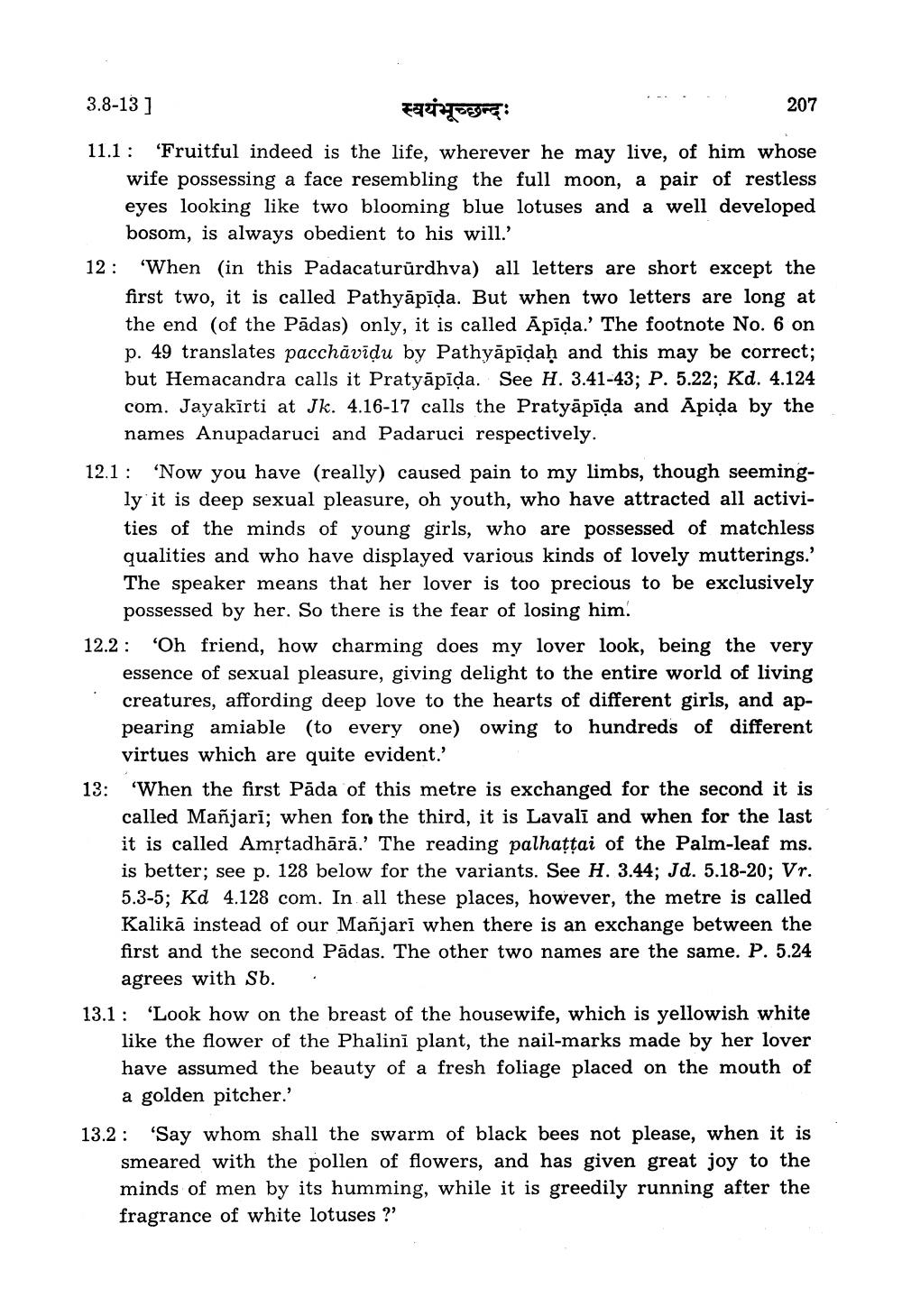________________
3.8-13 1 स्वयंभूच्छन्दः
207 11.1: Fruitful indeed is the life, wherever he may live, of him whose
wife possessing a face resembling the full moon, a pair of restless eyes looking like two blooming blue lotuses and a well developed
bosom, is always obedient to his will.' 12: "When (in this Padacaturürdhva) all letters are short except the
first two, it is called Pathyāpīda. But when two letters are long at the end of the Pādas) only, it is called Āpida.' The footnote No. 6 on p. 49 translates pacchāvīdu by Pathyāpidaḥ and this may be correct; but Hemacandra calls it Pratyāpida. See H. 3.41-43; P. 5.22; Kd. 4.124 com. Jayakīrti at Jk. 4.16-17 calls the Pratyāpīda and Āpida by the names Anupadaruci and Padaruci respectively.
12.1: 'Now you have (really) caused pain to my limbs, though seeming
ly it is deep sexual pleasure, oh youth, who have attracted all activities of the minds of young girls, who are possessed of matchless qualities and who have displayed various kinds of lovely mutterings.' The speaker means that her lover is too precious to be exclusively
possessed by her. So there is the fear of losing him. 12.2: 'Oh friend, how charming does my lover look, being the very
essence of sexual pleasure, giving delight to the entire world of living creatures, affording deep love to the hearts of different girls, and appearing amiable (to every one) owing to hundreds of different
virtues which are quite evident.' 13: 'When the first Päda of this metre is exchanged for the second it is
called Mañjarī; when for the third, it is Lavalī and when for the last it is called Amstadhārā.' The reading palhattai of the Palm-leaf ms. is better; see p. 128 below for the variants. See H. 3.44; Jd. 5.18-20; Vr. 5.3-5; Kd 4.128 com. In all these places, however, the metre is called Kalikā instead of our Mañjarī when there is an exchange between the first and the second Pādas. The other two names are the same. P. 5.24
agrees with Sb. . 13.1 : 'Look how on the breast of the housewife, which is yellowish white
like the flower of the Phalini plant, the nail-marks made by her lover have assumed the beauty of a fresh foliage placed on the mouth of
a golden pitcher.' 13.2: 'Say whom shall the swarm of black bees not please, when it is
smeared with the pollen of flowers, and has given great joy to the minds of men by its humming, while it is greedily running after the fragrance of white lotuses ?'




